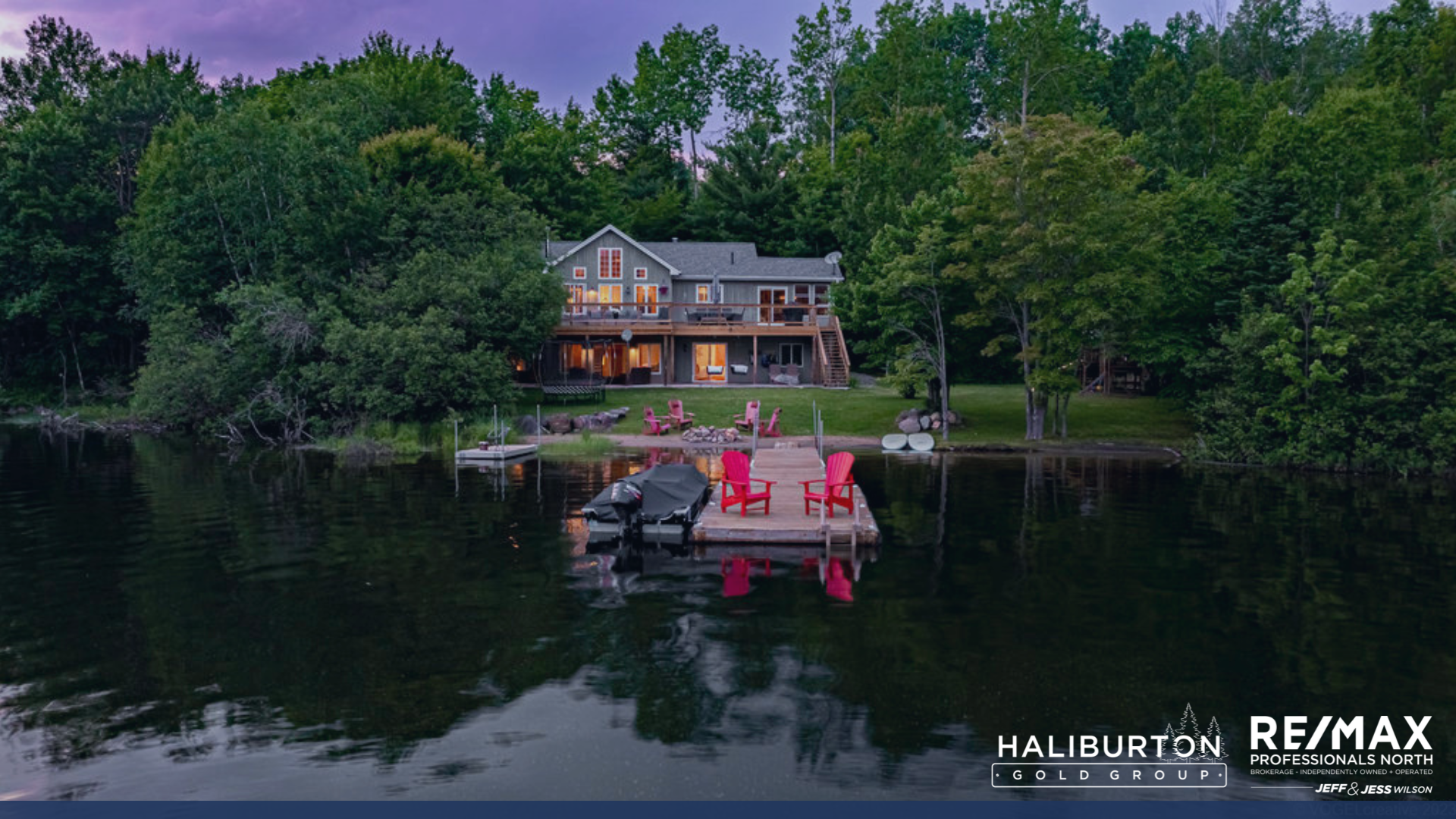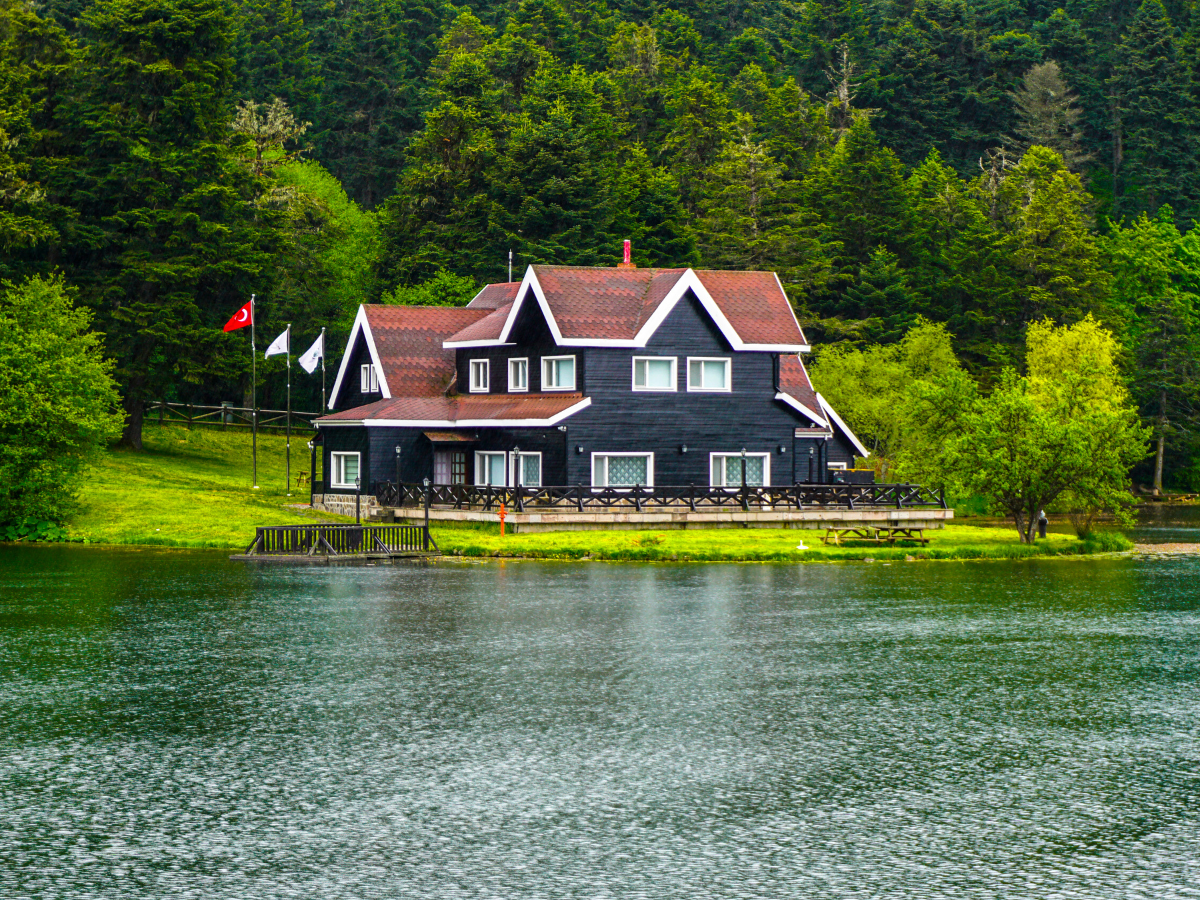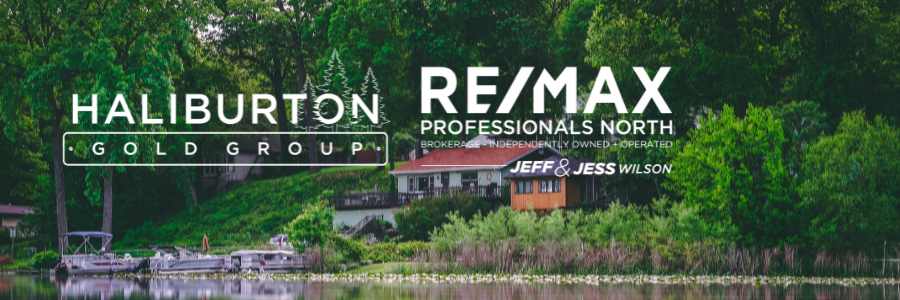8 Compelling Reasons to Invest in Waterfront Real Estate
An In-Depth Exploration
In the wide realm of real estate investment, one type stands apart from the rest: waterfront properties. Whether it's the majestic charm of the sea, the serene ambiance of a lake, or the tranquil flow of a river, properties that offer these alluring landscapes hold a unique appeal. But is investing in waterfront real estate merely about embracing the picturesque view, or is there more to it?
This blog post will delve into the distinct advantages of waterfront property investment that go beyond aesthetics. We'll explore eight compelling reasons why waterfront real estate deserves more than a passing mention in your investment conversations. From lucrative financial returns to unmatched lifestyle benefits, waterfront properties have a multitude of attractions that might just make them the missing piece in your real estate investment puzzle.
So, whether you're a seasoned investor, a potential homebuyer, or someone simply intrigued by the charm of waterfront living, read on to uncover why waterfront real estate could be an opportunity worth discussing.

1. The Allure of Waterfront Living
The appeal of waterfront properties lies not only in their aesthetic charm but also in the unique lifestyle they offer. The opportunity to wake up to panoramic water views and experience nature's captivating beauty up close is a privilege that few can resist. But beyond the idyllic scenery, waterfront living presents several benefits that enhance the quality of life.
- Embracing Outdoor Living: Waterfront properties come with an open invitation to immerse oneself in the outdoors. From boating and fishing to swimming and sunbathing, a host of activities beckon residents outside, promoting a more active, healthful lifestyle.
- A Tranquil Environment: The peaceful setting of waterfront properties provides a sanctuary away from the hustle and bustle of city life. The soothing sound of waves, the soft rustle of wind through reeds, and the quiet call of waterfowl can all contribute to a relaxing and stress-free environment.
- Privacy: Given their unique locations, many waterfront properties boast an enhanced level of privacy. With fewer neighbors and expansive views, homeowners can enjoy a sense of seclusion, while still being part of a community.
- Breathtaking Views: Perhaps one of the most obvious allurements of waterfront living is the breathtaking views. Whether it's a dramatic ocean sunset, a serene lake at dawn, or a river meandering through the landscape, the visuals provided by nature are priceless and ever-changing.
- A Strong Sense of Community: Waterfront communities often host a variety of social events and activities, fostering a strong sense of camaraderie among residents. Whether it's community fishing tournaments, lake clean-up days, or simply neighborly boat rides, the opportunities for interaction are plentiful.
In essence, the allure of waterfront living goes beyond its visual appeal—it's a lifestyle choice that combines outdoor living, tranquility, privacy, and community, offering an enriching living experience that few other property types can match.
2. Long-term Investment Potential
When it comes to investing in real estate, waterfront properties often stand out as high-reward investments, owing to their long-term potential. This potential is driven by several key factors:
Limited Supply: Waterfront properties are inherently limited in supply due to geographical constraints. You can build more houses, but you can't create more coastlines or lakefronts. This scarcity often results in higher property values and, subsequently, higher potential returns on investment.
- High Demand: The allure of waterfront living often translates into high demand for these properties. Many people dream of owning a waterfront home, whether as a primary residence, a vacation home, or a retirement retreat. This consistent demand can drive up property values over time.
- Rental Income Potential: If you're looking to generate passive income, waterfront properties can be an excellent choice. These properties tend to attract tourists and vacationers willing to pay a premium for the unique experience that waterfront living offers, thereby generating potentially high rental income.
- Appreciation: Waterfront properties have historically shown robust price appreciation. Their unique appeal and limited supply can lead to significant price increases over the long term, resulting in substantial capital gains when you decide to sell.
- Resilience: Waterfront properties are often more resilient during market downturns than their non-waterfront counterparts. Their unique appeal can help maintain demand and property values, even when the broader real estate market is struggling.
In essence, the long-term investment potential of waterfront properties lies in their ability to deliver significant returns through rental income and price appreciation while providing a degree of market resilience. That said, every investment comes with its risks, and it's crucial to carry out thorough due diligence before purchasing a waterfront property. This includes understanding the local real estate market, potential environmental risks, maintenance requirements, and insurance needs.
3. High Rental Demand
Waterfront properties, with their stunning views and relaxing ambiance, are often at the top of the list for vacationers and tourists, resulting in high rental demand. This demand stems from many unique factors associated with these properties:
- Vacation Appeal: The charm of a waterfront view combined with various recreational activities such as swimming, boating, and fishing, make these properties attractive vacation destinations. Whether it's families looking for a fun-filled summer holiday or couples seeking a tranquil getaway, waterfront homes often emerge as the preferred choice.
- Workation Trend: With remote work becoming more common in the wake of the COVID-19 pandemic, many people are opting for 'workstations', combining work with vacation. Waterfront properties, offering a serene work environment along with leisure activities, perfectly cater to this trend, thereby boosting rental demand.
- Seasonal and Off-season Demand: While summer months typically witness peak demand, waterfront properties can attract renters year-round. Winter activities like ice fishing or lakeside ice skating can appeal to off-season vacationers. Additionally, the tranquil, scenic environment can draw people looking for a peaceful retreat at any time of the year.
- Event Rentals: Waterfront properties can also be highly sought after for events such as weddings, family reunions, corporate retreats, or photography shoots. Such bookings can fetch a premium price, adding to the rental income potential.
- Premium Rental Rates: Due to their unique features and high demand, waterfront properties can command higher rental rates compared to non-waterfront homes. This is especially true for properties located near popular tourist destinations.
However, as an investor or property owner, it's essential to consider the costs associated with maintaining a rental property, including insurance, maintenance, property management, and local rental regulations. Furthermore, it's recommended to conduct a thorough market analysis to understand rental rates, occupancy rates, and competitor offerings in the chosen area. With the right strategies in place, waterfront properties can serve as lucrative rental investments.
4. Resilience in Real Estate Market Downturns
Market downturns are a reality in the real estate industry. However, certain types of properties tend to weather these downturns better than others, and waterfront properties often fall into this category. Here's why:
- Limited Supply: As mentioned earlier, the supply of waterfront properties is naturally limited. There are only so many coastlines, lakes, and riverbanks available for development. This scarcity factor can help maintain the value of waterfront properties even during downturns when demand may temporarily decrease.
- High Demand: Waterfront properties have enduring appeal, making them consistently desirable to a broad range of potential buyers. Even in times of economic uncertainty, these properties can attract buyers looking for a unique lifestyle or a long-term investment.
- Premium Properties: Waterfront properties are often considered premium properties. As such, they tend to attract buyers with higher disposable incomes who are less likely to be affected by short-term market downturns.
- Versatility: Many waterfront properties can be utilized in various ways. They can serve as primary residences, vacation homes, rental properties, or event venues. This versatility can help sustain demand and maintain property values during market downturns.
However, while waterfront properties may demonstrate resilience during downturns, they are not immune to market fluctuations. Like any real estate investment, they come with their own set of challenges, including potential environmental risks, higher maintenance needs, and sometimes more stringent regulations. Therefore, thorough due diligence and a comprehensive understanding of both the local real estate market and the specific characteristics of the waterfront property are critical when considering this type of investment.
5. Health and Wellness Benefits
Living close to water isn't just about scenic beauty and high investment returns; it's also linked to numerous health and wellness benefits. Here's how waterfront living can contribute to a healthier and happier life:
- Stress Reduction: The calming effect of water is well documented. The serene environment of waterfront property, combined with the soothing sounds of lapping waves or flowing rivers, can help reduce stress levels and promote relaxation.
- Increased Physical Activity: Waterfront properties encourage outdoor activities like swimming, boating, kayaking, or simply walking along the beach or lakeside. Such physical activities not only improve physical health but also enhance mood and mental well-being.
- Improved Air Quality: Air quality near water bodies is often better due to fewer pollutants and an abundance of negative ions, which are known to boost mood and increase levels of serotonin, a body chemical linked with mood regulation.
- Enhanced Sleep Quality: Many people report better sleep quality when living near water. This could be due to various factors including cleaner air, reduced stress levels, or the calming effects of ambient water sounds.
- Emotional Well-being: Living close to water can provide a sense of connection with nature, which has been linked to increased happiness and improved mental health. The opportunity to witness breathtaking sunrises or sunsets over the water can also contribute to emotional well-being.
In essence, the health and wellness benefits of waterfront living add yet another layer of appeal to these properties. However, it's important to note that while these benefits can enhance the quality of life, they should not replace regular healthcare or prescribed treatments.
6. Unique Community and Lifestyle Opportunities
Waterfront properties offer more than just a stunning view; they provide unique opportunities for community engagement and a lifestyle deeply connected with nature. Here's a deeper look at the unique community and lifestyle opportunities that come with owning waterfront properties:
1. Water-based Activities: Owning a waterfront property means direct access to a variety of water-based activities. Whether it's boating, kayaking, swimming, or fishing, there's no shortage of recreational opportunities to enjoy. These activities not only provide a fun way to spend your time but can also offer excellent opportunities for socializing and meeting like-minded neighbors.
2. Connection with Nature: Living on the water allows for an immersive connection with nature. From observing the wildlife to enjoying the serenity of a sunset over the water, these properties can provide an intimate interaction with the environment, contributing to overall well-being and a sense of peace.
3. Unique Community Events:
Waterfront communities often host unique events such as boat parades, fishing tournaments, waterfront festivals, and more. These events can provide an opportunity to bond with neighbors, form lasting friendships, and integrate more deeply into the local community.
4. Health and Fitness Opportunities: The proximity to water also promotes a healthier, active lifestyle. Waterfront living encourages activities like swimming, paddleboarding, or simply walking along the beach, which can contribute to better physical health and mental tranquility.
5. Ecotourism and Conservation Activities:
Waterfront communities often engage in conservation efforts to protect their surrounding environment. This can offer opportunities for residents to participate in ecotourism activities, beach cleanups, wildlife conservation initiatives, and more, fostering a sense of stewardship for the environment.
6. Enhanced Social Status:
Lastly, owing to their rarity and the luxury they represent, waterfront properties are often seen as a status symbol. Owning such a property can therefore present opportunities for networking and socializing within elite circles.
7. Tax Advantages
While owning waterfront properties comes with its own set of financial rewards, there can be potential tax advantages associated with these types of properties as well. Here are some key points to consider:
- Mortgage Interest Deduction: If your waterfront property is your primary residence or second home, you may be able to deduct the interest on your mortgage from your taxable income, thus potentially lowering your tax liability.
- Property Tax Deduction: Homeowners may also be able to deduct their property taxes. This can be a significant advantage, especially if your waterfront property is located in an area with high property taxes.
- Rental Income and Expenses: If you're renting out your waterfront property, you might be able to deduct expenses related to the upkeep and management of the property, such as maintenance costs, property management fees, insurance, and even depreciation. Additionally, you may be able to offset your rental income with these expenses, which can help reduce your overall taxable income.
- Capital Gains Exclusion: When you sell your primary residence, you may be eligible to exclude up to $250,000 (or $500,000 if married filing jointly) of capital gains from your taxable income, provided you meet certain IRS requirements.
- 1031 Exchange: If you're selling an investment property to purchase another, you might be able to defer capital gains taxes by utilizing a 1031 exchange, which allows you to swap one investment property for another without immediately incurring a tax liability.
However, it's crucial to note that tax laws can be complex and vary depending on your circumstances and location. Therefore, it's always recommended to consult with a tax advisor or real estate attorney to fully understand the tax implications of owning and selling waterfront properties.
8. Environmental Considerations
Owning a waterfront property comes with certain environmental considerations and responsibilities. Here are a few key points to keep in mind:
- Preservation of the Ecosystem: Waterfront environments often host diverse ecosystems that need to be preserved. Property owners have a responsibility to limit their environmental impact, whether it's preventing pollution, preserving native plants, or minimizing disturbances to wildlife.
- Understanding Water Rights: Depending on the location, water rights can vary significantly. As a waterfront property owner, it's essential to understand what your rights are in terms of access, usage, and alterations to the water and shoreline.
- Weather and Climate Considerations: Waterfront properties can be more exposed to extreme weather conditions, including storms, floods, or erosion. Understanding these risks and how to mitigate them is crucial. This might include investing in reinforced construction, maintaining appropriate insurance, or implementing sustainable landscaping to reduce erosion.
- Regulatory Compliance: Waterfront properties are often subject to additional regulations designed to protect the environment. These can include restrictions on construction, landscaping, septic systems, and more. Compliance with these regulations is not only a legal obligation but also a part of your responsibility to protect the environment.
- Energy Efficiency and Sustainability: Embracing energy-efficient designs and technologies can reduce the environmental impact of your property. This can include everything from energy-efficient appliances and lighting to solar panels and sustainable building materials.
Owning waterfront property is a unique privilege that brings with it unique responsibilities towards the environment. Being aware of these responsibilities and actively striving to minimize your environmental impact not only helps protect the environment but can also enhance the appeal and value of your property.
Conclusion
Waterfront real estate represents a unique category within the property market. From the distinctive lifestyle it offers to the potential financial benefits, there are numerous compelling reasons why one should consider investing in these properties. In this blog post, we've explored eight such reasons:
- The allure of waterfront living that goes beyond mere aesthetics, offering a unique lifestyle steeped in nature and tranquility.
- The long-term investment potential arises from limited supply, high demand, and the premium nature of waterfront properties.
- The high rental demand for waterfront homes, particularly vacation rentals, is driven by their unique appeal and versatile usage potential.
- The market resilience of waterfront properties during real estate downturns, owing to their enduring demand and premium nature.
- The health and wellness benefits associated with living close to water, including stress reduction, increased physical activity, improved air quality, better sleep quality, and enhanced emotional well-being.
- The potential tax advantages related to mortgage interest deduction, property tax deduction, rental income and expenses, capital gains exclusion, and the possibility of a 1031 exchange.
- The environmental considerations and responsibilities that come with owning a waterfront property, emphasize the importance of preservation, understanding water rights, preparing for weather and climate risks, complying with regulations, and implementing sustainable practices.
Indeed, investing in waterfront real estate can be both personally rewarding and financially advantageous. But like any investment, it's vital to do thorough research, understand the market, and consider personal circumstances and goals. For those who do their due diligence, the rewards can be well worth the effort.
Remember, this blog post serves as a guide, and it's always recommended to seek professional advice from real estate experts, legal advisors, and tax professionals when making significant property investment decisions.
In the end, whether you're dreaming of a peaceful waterfront retreat, planning a long-term investment, or looking for a rewarding rental venture, waterfront real estate offers opportunities that are worth talking about.
And now, let's move on to some frequently asked questions about waterfront real estate...
FAQ’s
In this section, common questions related to waterfront real estate would be addressed. This can include queries about the buying process, maintenance considerations, insurance needs, legal aspects, and more.
These are some of the most frequently asked questions about waterfront real estate. If you have any more questions or need more detailed information, consider reaching out to a real estate professional or legal advisor who specializes in waterfront properties.
Waterfront properties may require additional insurance coverage, such as flood insurance or hurricane insurance, depending on their location. It's important to understand these requirements and factor them into your financial planning.
Learn More













